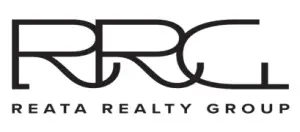
How to evaluate Senior Living Facilities: Expert Tips and Advice
How to evaluate Senior Living Facilities: Expert Tips and Advice
Knowing how to evaluate assisted living, memory care or independent living facilities is absolutely crucial before moving yourself or a loved one into one. The reason: Not all are created equal.
“Just like there are some great senior living providers out there, there are some bad actors in the space. Families want to make sure that a senior living community is safe and that it has a good track record of providing good care.
Further, she notes, someone with cognitive concerns, like dementia, may not be able to communicate if there is a problem. “This means you need to have some trust that they are receiving good care once they move.”
Here, experts explain exactly how to evaluate senior living facilities from the very beginning of your search to the end.
The importance of due diligence when searching for senior living facilities
Putting in the work is “crucial” when searching for a senior living facility for yourself or a loved one, in Texas, as the decision impacts one’s “quality of life, safety and well- being.”
Since every facility has their own set of unique strengths, services and levels of care, choosing the right one ensures that the resident’s specific health, social and emotional needs will be met, she explains.
“Thorough research helps identify facilities with high standards of care, qualified staff and a positive environment, which reduces the risk of poor-quality care or unexpected costs,” notes Cromwell. “Additionally, understanding the pricing structure and potential for rate increases allows families to budget realistically and avoid financial strain down the road.”
Narrow down your options
Drawing up an initial list of senior living facilities is no small task, as the options (and ways to find options) can feel endless. Your first go-to should be talking to friends and family in the community.
“Word of mouth is one of the most valuable resources . “Recommendations from friends, neighbors or colleagues who have personal experience with a facility can provide trusted insights.”
Other vetting tools to consider are online directories, local senior centers or area agencies on aging and Google. “Look at the reviews and actually read them.
“For those seeking specific amenities or care types, facilities’ own websites and virtual tours provide a direct look at what’s offered,” says Cromwell. “By drawing on these resources, families can create a comprehensive list of options that meet specific care needs, location preferences and budget constraints.”
Research health and safety standards
Once you have an initial list, and you’ve combed through reviews, it’s time to go a little deeper and research the facilities’ health and safety standards. We recommend seeing if Texas or city offers the past inspection reports for the provider. “Try to get a hold of a copy online,” she says. “If you can’t, you can always ask the provider to see a copy.”
Something to keep in mind: Inspection reports can be complicated to decipher, but doing the work is worth it. “These will give you a good sense of what kind of problems have happened in the past,” Most providers have at least a few deficiencies, as no provider is perfect.”
But! You do want to make sure certain standards are being met. “If you are looking for a community that provides memory care, it’s important to ask what steps are taken to ensure resident safety, especially if the person moving is at risk for wandering.
Other things to look for:
Licensing and accreditation. Facilities should hold valid state licenses and meet local regulations, which families can often verify through the state’s health or aging department, where inspection records and any past violations are available.
Keep in mind, though, this varies from state to state, and not all states require a license, To further complicate things, each state may call facilities by different names — so you need to know what you’re looking for.
“For example, in Massachusetts, assisted living is simply called ‘assisted living,“But in California, they are licensed as ‘residential care facilities for the elderly.’”
To learn more about licensure, you can either request to see a copy during your tour (more on this shortly). Or, LaBree notes, you can Google: the name of the state + the provider type + licensure.
